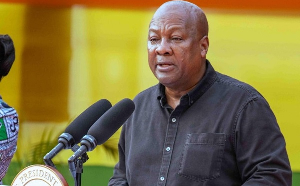The Delegation of the United Nations’ (UN) Sub-committee on the Prevention of Torture and Other Cruel Inhumane and Degrading Treatment or Punishment (SPT) is on an official visit to Ghana to learn about Ghana’s National Preventive Mechanism (NPM).
The delegation led by Mr Malcolm Evans, called on the Ministry of Foreign Affairs and Regional Integration in Accra on Tuesday to help provide advice and assistance to Ghana to facilitate the setting up of the NPM.
The SPT is a new kind of treaty body in the United Nations human rights system.
It has a preventive mandate focused on an innovative, sustained and proactive approach to the prevention of torture and ill treatment and started in February 2007.
He said the SPT was established pursuant to the provisions of a treaty, the Optional Protocol to the Convention against Torture (OPCAT).
The OPCAT was adopted on December 2002 by the General Assembly of the United Nations and entered into force in June 2006.
Mr Evans said the SPT had 25 independent and impartial experts from different backgrounds and regions of the world, adding that Ghana was also an independent body that was free to come up with its own strategies to reduce the risk on torture.
Mr Evans said every country had its forms of torture and that it had to come up with its own ways of dealing with them as the UN would not tell any country what to do but to only advise.
In Ghana for instance, over-crowded prisons, death penalty, overly long sentences, poor healthcare and mental healthcare could be seen as cruel, he noted.
He suggested that protectional framework of the criminal justice system were some of the strategies that could be looked at to reduce the risks, adding that education was also key to prevent such cases.
Mr Evans commended Ghana for standing ready to fulfil all conventional matters by being devoted to work and improve procedures and practices as its preventive measures.
Mr Charles Owiredu, Deputy Minister for Foreign Affairs said Ghana ratified OPCAT in 2016 and according to its provisions, the subcommittee had the right to visit states that were party to it and places of the deprivation of liberty to check the steps taken to deal with, prevent them from occuring and detention places were habitable and conditions humane.
He explained that when a country became a member, it must maintain, designate or establish one or several independent NPM for the prevention of torture locally, but was quick to add that Ghana is yet to establish a NPM.
Mr Owiredu said that while waiting to establish NPM, the Commission on Human Rights and Administrative Justice showed its interest to act as NPM after the necessary constitutional hurdles were put in place.
He called for technical assistance for the implementation of OPCAT through the treaty body capacity building programme.
SPT has two main functions; as it undertakes visits to State Parties, during the course of which it may visit any place, where persons may be deprived of their liberty as well as playing the advisory role by providing assistance and advice to States Parties on the establishment of National Preventive Mechanisms (“NPM”), which OPCAT required that they establish.
SPT cooperates for the prevention of torture in general, with relevant United Nations organs and mechanisms as well as with international, regional, and national institutions or organisations.
Under the OPCAT, the SPT has unrestricted access to all places, where persons may be deprived of their liberty, their installations and facilities and to all relevant information.
The SPT can visit police stations, prisons (military and civilian), detention centres, mental health and social care institutions and places where people are or may be deprived of their liberty.
General News of Wednesday, 29 May 2019
Source: ghananewsagency.org













